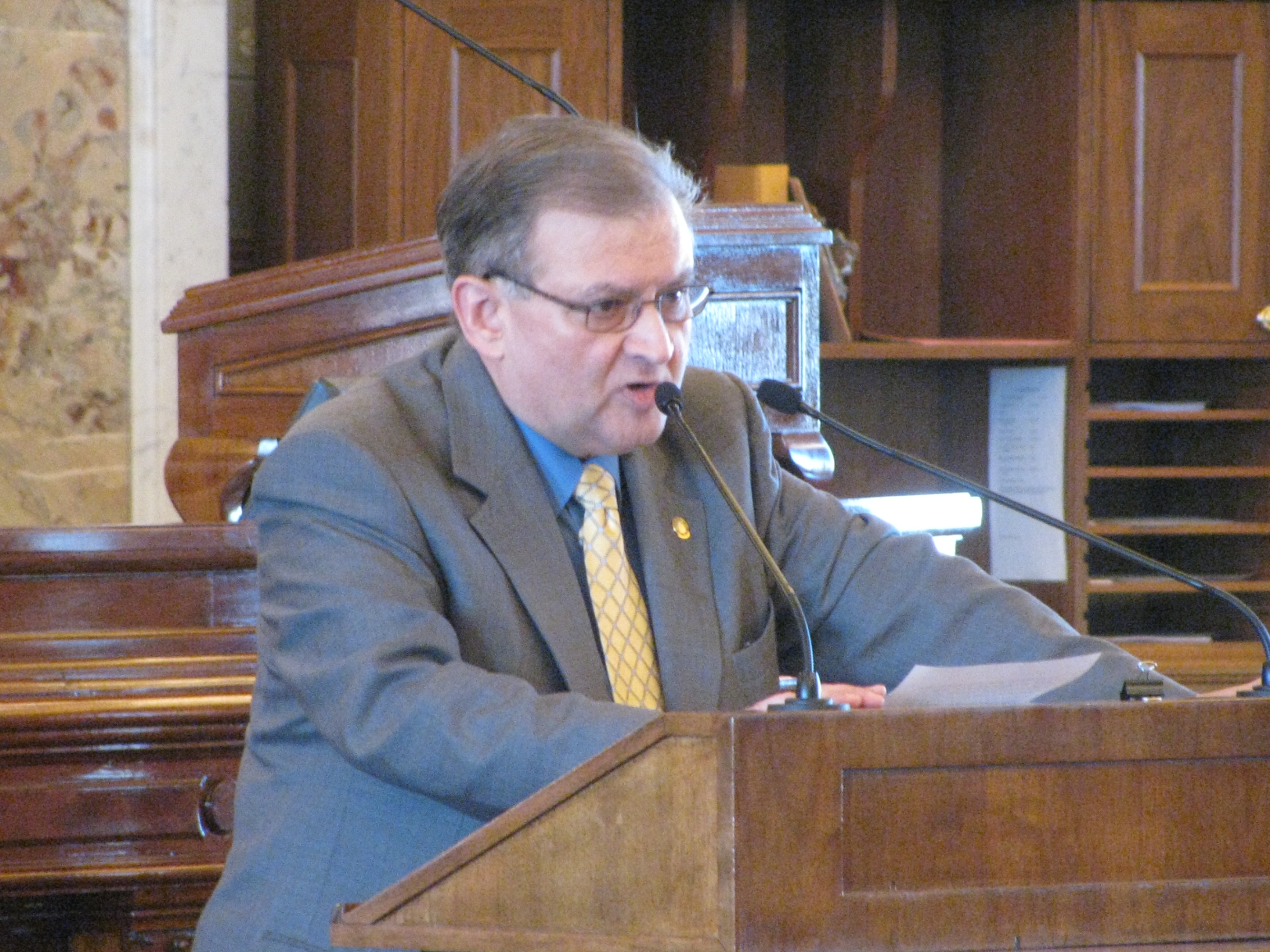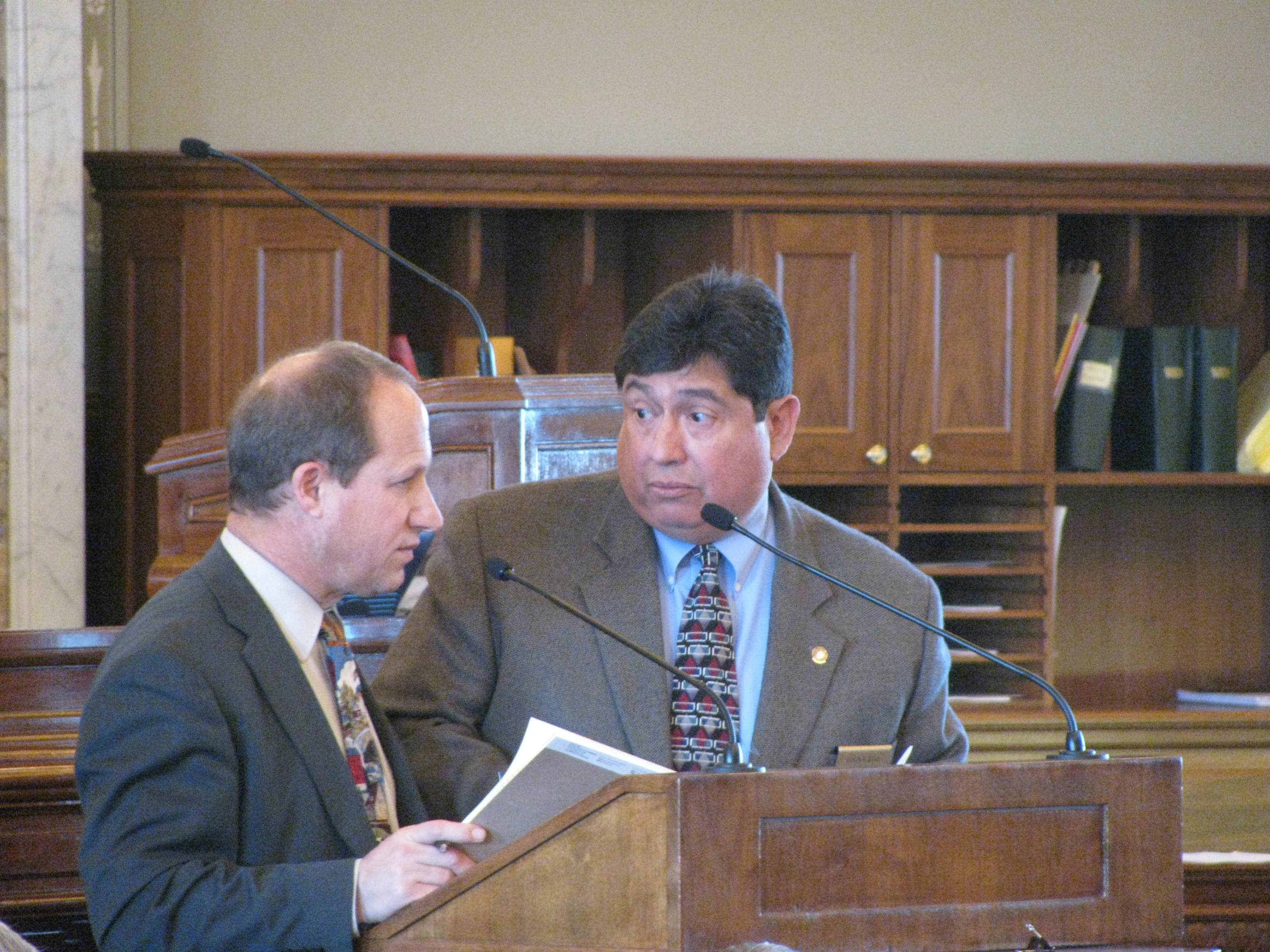Kansas House advances repeal of in-state tuition for undocumented students

State Rep. Mario Goico, R-Wichita, speaks in the Kansas House on Monday in opposition to House Bill 2006, which would repeal the lower in-state tuition for some undocumented students. The measure was advanced toward a final vote on Tuesday.

State Reps. Forrest Knox, R-Altoona, left, and Lois Ruiz, D-Kansas City, discuss a bill to repeal in-state tuition for undocumented students who were brought here by their parents. Knox is a sponsor of the bill; Ruiz opposed it.
Topeka ? The House on Monday moved to repeal a 7-year-old law that allows students whose parents brought them to Kansas illegally to pay in-state college tuition.
The measure advanced 69-49 on a nonrecord vote. A final vote is expected today.
House members went over many of the same arguments that have been covered in recent years.
Opponents of the current law, including Kansas Secretary of State Kris Kobach, say it is an incentive for illegal immigrants to come to Kansas. Supporters, which include education and religious representatives, say the law helps children who didn’t choose to come to the country illegally.
The difference between in-state and out-of-state tuition is significant. A first-time freshman who entered KU last fall paid $3,938 per semester for tuition if they were considered Kansas residents. A nonresident paid $10,340.
Under the current Kansas law, students are considered Kansas residents eligible for in-state tuition if they graduated from a Kansas high school or received a GED, have lived in the state for three years and pledge to become citizens.
The Kansas Board of Regents said 413 students enrolled under the law last fall at state universities, community colleges and technical colleges.
Rep. Mario Goico, R-Wichita, defended the lower tuition for undocumented students, saying he sympathized with their plight.
Goico left Cuba at age 14 to avoid the regime of Fidel Castro and then spent several years in foster homes and orphanages.
“When you find yourself in these situations, you feel like baggage that nobody wants,” he said.
He then went to college, paying the higher out-of-state tuition — something he said was extremely difficult. After earning a degree, Goico joined the U.S. Air Force and retired after 32 years of service.
But Rep. Caryn Tyson, R-Parker, said most Kansans want the law repealed.
“Your constituents want it,” she said.
Others argued that under federal law, Kansas had no right to grant resident status to people not here legally.
But Rep. Barbara Ballard, D-Lawrence, said many of these young people know only Kansas as their home.
“They want to be educated. If we allow that, they will serve the state well,” she said.
Rep. Forrest Knox, R-Altoona, argued the law cost the state approximately $1 million per year, citing the difference between students paying in-state and out-of-state tuition.
But supporters of the law said that figure was based on a false assumption because most of the students wouldn’t be going to school at all unless they could pay the lower in-state tuition. The Kansas Board of Regents, which oversees higher education, supports the law as is.
And Rep. Bob Bethell, R-Alden, said it made no sense to provide taxpayer-funded kindergarten through 12th grade education for undocumented students and then deny society the benefit of their higher education, which the students would be paying.
Rep. Charles Roth, R-Salina, said, “At its basis, the core of this bill is mean-spirited, and it’s not the Kansas way.” He said by repealing the law, “we are punishing the children for the sins of their fathers.”







